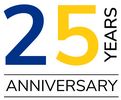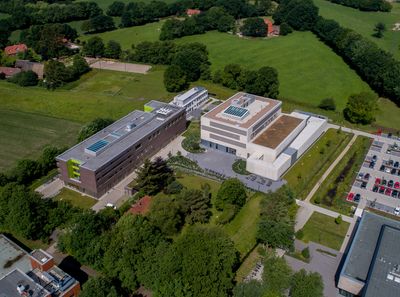UOL's ambassador for the Nelson Mandela University
International Office contact
Director
Regional Coordinator NON-EU
Renewable energies
InnoVenton, the internationally recognised Institute for Chemical Technology at Nelson Mandela University, began its microalgae project a decade ago with the aim of using algae to reduce harmful carbon dioxide emissions from factory off-gases and subsequently harvesting the algae biomass for various applications in the area of renewable energies. InnoVenton also discovered that the biomass can combine with discard coal and be shaped into the coal briquettes now known under the brand name Coalgae®. This trailblazing microalgae energy project has proved to be a highly versatile environmental solution that cleans up atmospheric pollution and provides renewable energy in the form of a slow burning, low-smoke household fuel. Nelson Mandela University has focused on creating a green and sustainable campus by leveraging its research excellence in sustainability science to deliver major projects in the areas of energy, environmental policy, and infrastructure development. As part of these efforts, the university has commissioned a solar power plant worth about 16.5 million Rand with a capacity of 1 MW that generates sustainable electricity and meets five to six per cent of the university’s total energy requirements.
Energy research at the University of Oldenburg has focused on cross-sector coupling and the digital transformation (OFFIS, DLR), wind energy resources and systems (ForWind – Center for Wind Energy Research), sustainability assessment (COAST) and economic and social interdependencies in large-scale energy systems (Department of Business, Economics and Law, Institute for Social Sciences). UOL has now been running cutting-edge and genuinely international renewable energy programmes at Master’s level for more than 35 years. They include the M. Sc. in Sustainable Renewable Energy Technologies (SuRE, formerly PPRE), the European Master’s in Renewable Energy (EMRE), and the M. Sc. in Engineering Physics (EP) – a specialisation in renewable energy that has fostered student mobility between UOL and Nelson Mandela University. The Graduate School of Science, Medicine and Technology (OLTECH) at UOL offers an interdisciplinary, structured doctoral programme in the area of renewable energies.
At Nelson Mandela University, research and teaching on energy is conducted mainly by the Faculty of Science, the Faculty of Engineering, Built Environment and Technology, and the Faculty of Business and Economic Sciences. Teaching is offered at levels 4 (National Certificate) to 8 (Bachelor Honours) of the National Qualifications Framework (NQF). Both universities need to discuss and agree on new areas for co-operation and on the necessary funding models.
The following potential areas for co-operation have been identified – subject to agreement on suitable funding options being reached:
1. Online courses and short-term student exchanges
- Participation of students from Nelson Mandela University in blended (in-person and online) interdisciplinary courses at UOL on renewable energies to ensure that a broad group of potentially interested students are reached. Suitable courses could, for instance, look at appraising the resilience or the sustainability of energy systems. For this option to be feasible, a funding mechanism would need to be found that could cover the additional costs that would arise out of supervising NMU students.
- UOL students could benefit from access to authentic case studies and data generated from them on the delivery of renewable energies in the context of the Global South. Potential students could come from the above-mentioned degree programmes and from the Sustainability Economics and Management (SEM) and Water and Coastal Management (WCM) degree programmes. These students could also be interested in attending lectures and workshops on renewable energy at the Business School of the Faculty of Business and Economic Sciences at Nelson Mandela University.
2. Mobility of scholars and researchers
- Short-term stays or participation in online courses could be used to increase mobility
- Preparation of joint applications, for instance in the context of the “International Virtual Academic Collaboration (IVAC)” programme offered by the German Academic Exchange Service (DAAD)
3. Integration of the area of renewable energies into the planned graduate school “ICT in Support of Sustainable Development”
- The operation and control of renewable energy systems has been identified as a suitable focus for the planned joint graduate school.
- This graduate school could provide an expedient framework for joint supervision of doctoral projects.




